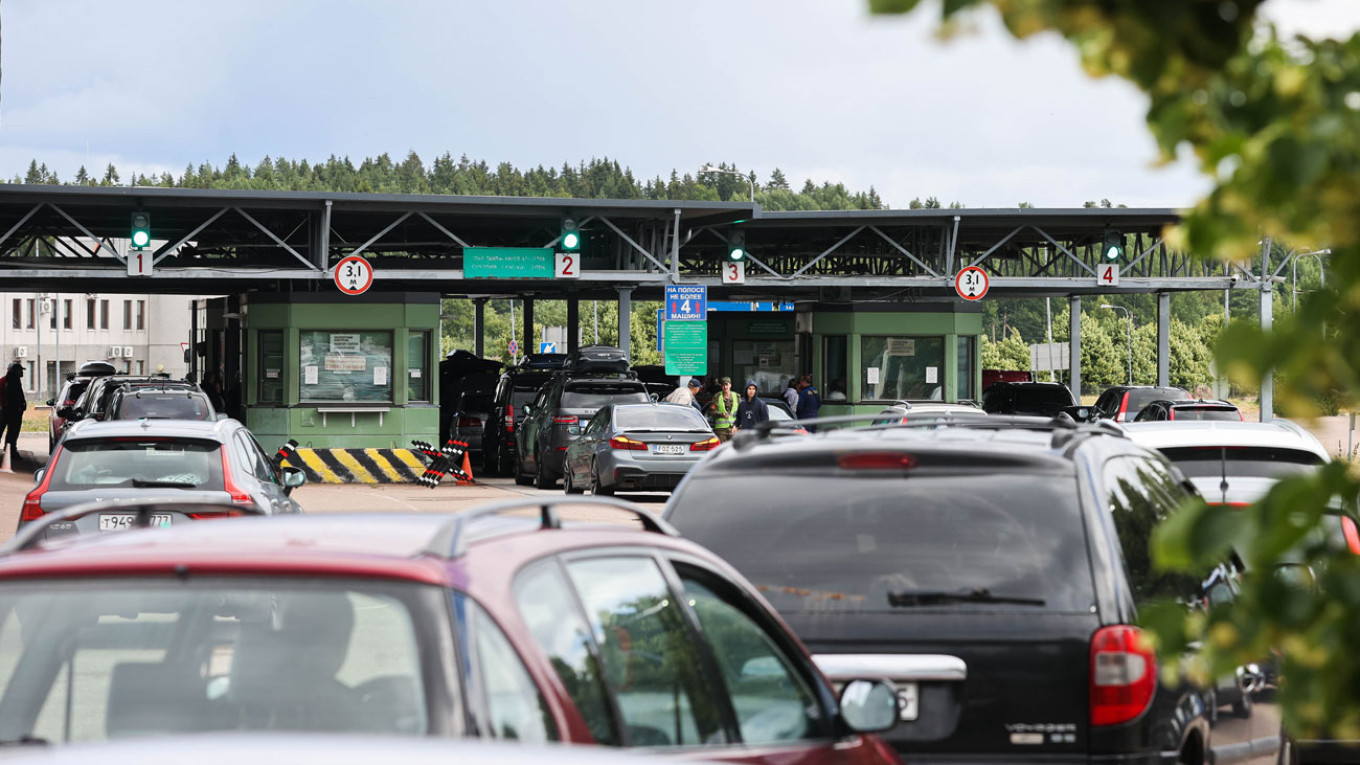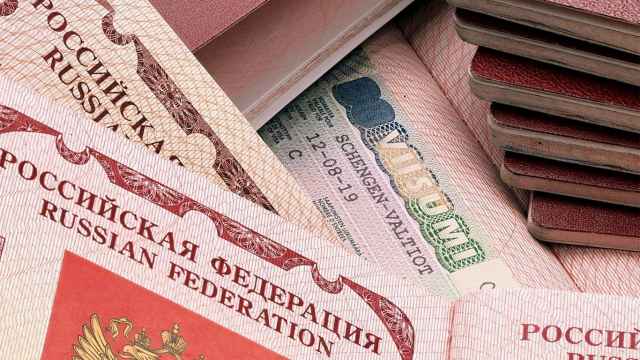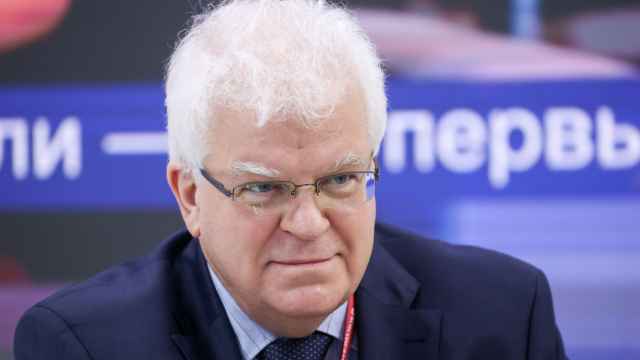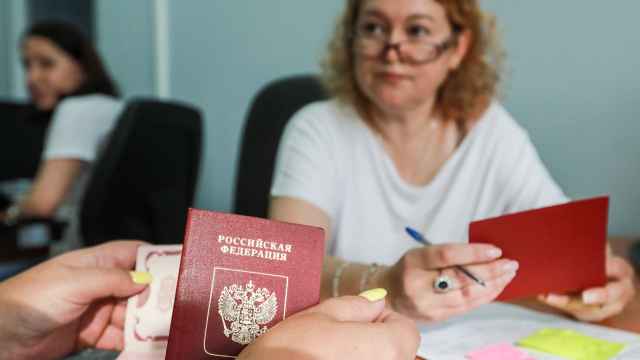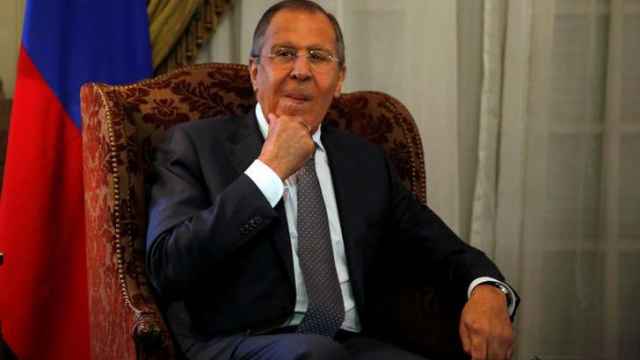European Union ministers rejected a proposal to ban Russians from entering the bloc’s territory, opting instead for a half-measure that features none of the benefits and many of the disadvantages of this policy. But such a visa ban is consistent with the EU’s broader approach to sanctions and is warranted given the unprecedented security crisis that Russia has created through its war against Ukraine.
Last week the European Union debated a visa ban on Russia. In the end, it merely suspended its 2007 visa-facilitation agreement. This will make it slower, costlier and harder, but not impossible, for Russians to enter the EU. Should the EU go further?
There are right and wrong ways to frame this issue. The wrong way is to portray a visa ban as "collective punishment" of the entire Russian population, and thus as inherently unjust. But a visa ban is no more – and no less – "collective" in its effect than any policy towards an entire country. Economic sanctions, even those targeted against specific sectors, have a nationwide impact on growth, incomes and inflation. Nonetheless, the EU has imposed seven packages of sanctions on Russia, and the G7 has just agreed a historic price cap on Russian oil sales that will hit the Russian state budget. Sanctions prompt no complaint of “collective punishment.”
In fact, the right way to think about a visa ban on Russia is precisely as a sanction. Sanctions seek to achieve political effects by restricting economic flows across borders. The initial Western sanctions imposed after Russia’s invasion of Ukraine in February cut flows of goods, capital and technology into Russia. More recent sanctions seek to restrict energy flows out of Russia, or to shift the terms of their trade. A visa ban would restrict flows of people from Russia. Understanding a visa ban as just one further sanction, not a radical new policy, clarifies the issue at stake.
As with any sanction, we can ask: will cutting the flow of Russians advance Europe’s policy goals? Most Russians who visit Europe are tourists. They arrive, consume and return to Russia, and thus enjoy access to goods and services that European sanctions deprive them of in their own country. Seen in this light, Russian tourism is a sanctions loophole that a visa ban would close. Like all sanctions, it would impose costs to constrain or change hostile policies. In this case, it would powerfully signal to more affluent Russians – who are most likely to visit Europe and are a potential source of change in Russia – the consequences of their country’s disastrous war. It would give them one further reason to oppose it.
In more specific ways, too, a visa ban would complement existing sanctions. It is now hard for Russians to make or invest money in Europe; they should not be able to spend it there either. Since Russia’s invasion of Ukraine, Europe’s unprecedented flight ban has made it significantly harder for Russians to visit. With Russia now carrying out systemic war crimes on occupied territory, the logical next step is to stop Russians from enjoying the continent that their countrymen are despoiling.
A visa ban is a security measure too. Some Russian "tourists" have long posed a threat to countries that receive them. The GRU officers who poisoned Sergei and Yulia Skripal with the military-grade nerve agent Novichok in 2018 were supposedly visiting Salisbury to admire its cathedral spire. Since mass expulsions from Russian embassies in Europe have degraded intelligence capacity under diplomatic cover, the incentive to use tourism for this purpose is now greater than ever and presents a major challenge to Western domestic counter-intelligence services. Russia openly considers itself at war with the West. Countries at war do not allow enemy citizens to roam on their territories.
Three arguments are offered against a visa ban. Firstly, some insist that people-to-people contacts remain important, even in wartime, by exposing Russians to “an alternative system and worldview.” Yet millions of Russian tourist visits to Europe over the past two decades did not stop a large majority backing Russia’s invasion. Nor did familiarity with Ukraine itself through family ties and friends. ‘Change through trade’ did not work: neither will change through consumption and leisure. Some, like former head of the Munich Security Conference Wolfgang Ischinger, have proposed a compromise whereby Russian visa applicants be obliged to sign a declaration of opposition to the war. This meaningless gesture will prove nothing and change no one’s mind. And in Russia, a society steeped in centuries of cynical dissembling to officialdom, it will be treated with contempt.
The second argument against a visa ban holds that it would enable the Kremlin to portray Europe as hostile to ordinary Russians. This bogus grievance of “Russophobia” has been a staple of official propaganda since at least 2014. The Kremlin misses no opportunity – including current sanctions – to fuel this myth, and fabricates others when it needs to. There is little reason to think that a visa ban would materially enhance its ability to do so.
Finally, some argue that a visa ban would violate commitments to those facing persecution in Russia. This is a legitimate concern. The West always welcomed those who fled the Soviet regime and should do so to those fleeing its successor. Most can make their way to non-EU neighbors, but there is an ethical case for allowing them to enter the EU – and a practical one for helping them organize opposition to the Putin regime in safety. To anathematize every Russian, irrespective of their beliefs and values, is counterproductive and wrong.
The policy challenge, then, is to craft exceptions to a visa ban that serve European interests and values. These might include selected educational and humanitarian considerations as well as obligations under international asylum law. The operational details will need to be worked out, but the underlying principle is clear. The arguments against a ban are otherwise unpersuasive. In any case, they apply equally to the EU’s compromise position of scrapping the visa-facilitation agreement. This has all the disadvantages, but none of the benefits, of a broader visa ban.
Such a ban would be consistent with the wider unravelling of Europe’s relationship with Russia that reflects the unprecedented security crisis on the continent. If Russia can cut its gas supply, which reliably sustained Europe for decades, why should Europe not cut the flow of citizens, whose support sustains Russia’s regime? This will demonstrate to Russia the folly of its invasion, and will make Europe more secure.
This article was originally published by the International Institute for Strategic Studies here.
A Message from The Moscow Times:
Dear readers,
We are facing unprecedented challenges. Russia's Prosecutor General's Office has designated The Moscow Times as an "undesirable" organization, criminalizing our work and putting our staff at risk of prosecution. This follows our earlier unjust labeling as a "foreign agent."
These actions are direct attempts to silence independent journalism in Russia. The authorities claim our work "discredits the decisions of the Russian leadership." We see things differently: we strive to provide accurate, unbiased reporting on Russia.
We, the journalists of The Moscow Times, refuse to be silenced. But to continue our work, we need your help.
Your support, no matter how small, makes a world of difference. If you can, please support us monthly starting from just $2. It's quick to set up, and every contribution makes a significant impact.
By supporting The Moscow Times, you're defending open, independent journalism in the face of repression. Thank you for standing with us.
Remind me later.



